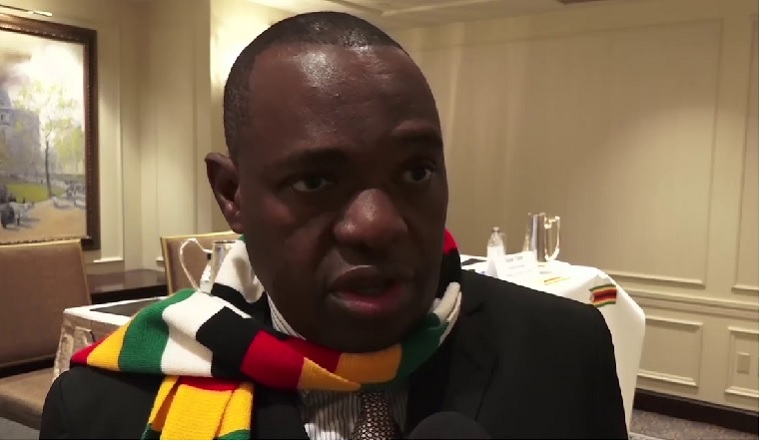 Zimbabwe has never been an adversary of the United States despite Washington’s continued interference in the country’s internal affairs, Foreign Affairs and International Trade Minister, Sibusiso Moyo said today.
Zimbabwe has never been an adversary of the United States despite Washington’s continued interference in the country’s internal affairs, Foreign Affairs and International Trade Minister, Sibusiso Moyo said today.
He said this after meeting US ambassador Brian Nichols to express Harare’s shock at yesterday’s comments by White House National Security Advisor, Robert O’Brien that Zimbabwe was one of the US’s adversaries helping to foment ongoing unrest in American cities sparked by the death of a black man at the hands of a rogue police officer.
The killing is the latest in a series by white American police officers of black people, often with impunity.
But the latest case, in which police officers murdered George Floyd in the city of Minneapolis, has sparked the worst protest riots in the US in decades.
These have even spread around the world, with protestors picketing US embassies in Europe and elsewhere.
Zimbabwe has not officially commented on the riots or Floyd’s brutal slaying, but O’Brien said Harare was among adversaries of the US such as Russia and China formenting the unrest in American cities.
The upheavals have continued unabated for more than a week after Floyd’s death, forcing the US government to deploy the National Guard and army units in worst affected cities.
Moyo said Zimbabwe was neither an adversary of the United States, nor stirring up the ongoing riots in the US.
“Zimbabwe is not and has never been an adversary of the United States of America,” he said.
“Even in the face of repeated interference in our own internal affairs, Zimbabwe has been unwavering in its support of Article 2 (4)of the United Nations Charter which expressly urges all member states to respect the sovereignty, territorial integrity and political independence of other states.”
O’Brien threatened that the US would take unspecified action against the so-called adversaries.
Moyo said Zimbabwe seeks a “normal cooperative relationship with the USA based on mutual understanding, mutual respect and non-interference in each other internal affairs”.
“..Zimbabwe derives no pleasure at all from the scenes of violence and hatred which have erupted in cities and towns across the United States of America,” Moyo said.
He said Harare hoped the US would, going forward, take a “more even handed and less prescriptive approach” in its bilateral dealings with Zimbabwe.
But, ironically, after the meeting, Nichols accused Zimbabwe instead of human rights abuses, citing the case of three opposition members that claimed they were abducted three weeks ago.
“Americans will continue to speak out for justice whether at home or abroad,” he said in a strange, defiant statement.
Washington has been opposed to the Zimbabwe government for over two decades now, specifically the country’s land reform policies under which excess farmlamd was compulsorily taken from white farmers to resettle landless blacks.
The programme benefited more than 500 000 people, but prompted the US to impose sanctions on the country, which the government estimates have cost the economy over US$100 billion over the period.
Harare also suspects Washington of sponsoring opposition parties and groups in Zimbabwe in a bid to unseat the government, and reverse the land reforms.
The opposition parties and groups, under external prodding, routinely hold violent demonstrations against the government, and stage abductions to draw international sympathy, often ahead of global or regional meetings.
The latest abduction claim three weeks ago drew the usual outcry from the US and its western allies, and coincided with a summit meeting of four regional heads of states in Harare.-New Ziana
(85 VIEWS)






0 Comments